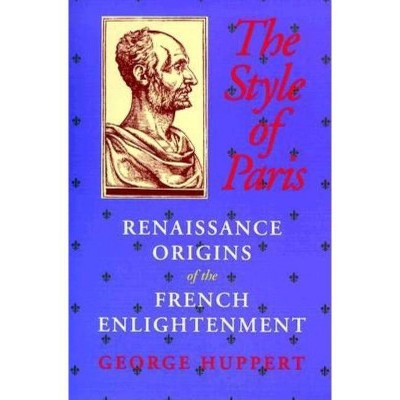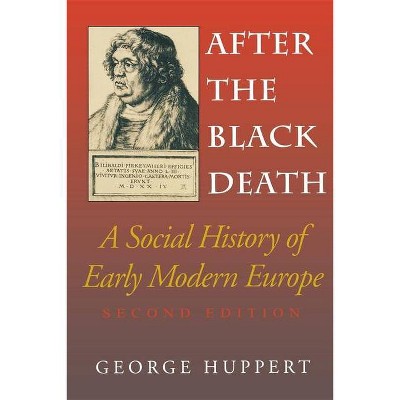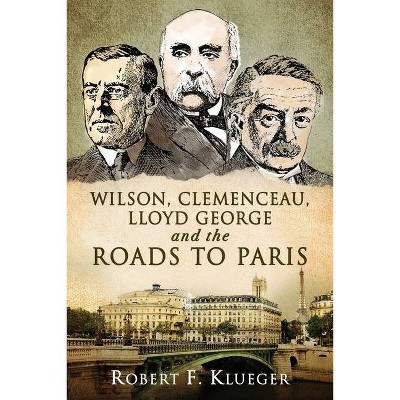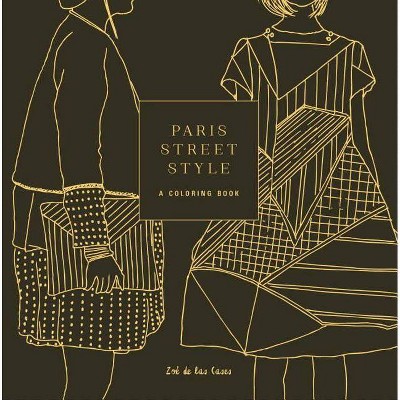The Style of Paris - by George Huppert (Paperback)

Similar Products
Products of same category from the store
AllProduct info
<p/><br></br><p><b> About the Book </b></p></br></br>These young radicals fostered a succession of disciples who expressed confidence in the eventual enlightenment of humankind and whose ideas would bear fruit two centuries later.<p/><br></br><p><b> Book Synopsis </b></p></br></br><p> . . . impressive and challenging reevaluation of the sixteenth-century origins of the Enlightenment. --Sixteenth Century Journal</p><p>In this book, George Huppert introduces the reader to a group of talented young men, some of them teenagers, who were the talk of the town in Renaissance Paris. They called themselves philosophes, they wrote poetry, they studied Greek and mathematics--and they entertained subversive notions concerning religion and politics. Classically trained, they wrote, nevertheless, in French, so as to reach the widest possible audience. These young radicals fostered a succession of disciples who expressed confidence in the eventual enlightenment of humankind and whose ideas would bear fruit two centuries later.</p><p/><br></br><p><b> From the Back Cover </b></p></br></br>In his latest book, George Huppert introduces the reader to a group of talented young men, some of them teenagers, who were the talk of the town in Renaissance Paris. They called themselves philosophes. They wrote poetry, they studied Greek and mathematics -- and they entertained subversive notions about religion and politics. Though classically trained, these men wrote in French to reach the widest possible audience. In time these young radicals learned to speak more softly, out of prudence, but they were heard clearly enough to foster a succession of disciples who continued to express confidence in the eventual enlightenment of humankind.<P>Huppert argues that all attempts to suppress this movement failed because the program of the early philosophes and of their successors was deeply embedded in the classical educational system devised in the 1520s, the so-called ""style of Paris."" In the sixteenth century, these schools existed in such profusion and were so free of clerical or state interference that they became the foundation of a new culture which stood in direct opposition to age-old pieties.<P>Through a series of portraits, Huppert presents the essential traits of this new culture. The teachers, lawyers, scientists, and priests called on here to illustrate the philosophes' outlook are little-known figures, for the most part, but their legacy is substantial. To demonstrate their importance, Huppert sets the mature reflections of eighteenth-century ideologues such as Kant, Voltaire, and Jefferson against the background, not of occasional precursors, but of an entire culture ineradicably permeated by revolutionary ideas born in the classrooms and the bookshops of Renaissance Paris.<p/><br></br><p><b> About the Author </b></p></br></br><p>GEORGE HUPPERT is Professor of History at the University of Illinois at Chicago. He is author of The Idea of Perfect History: Historical Erudition and Historical Philosophy in Renaissance France, Les Bourgeois Gentilhommes: An Essay on the Definition of Elites in Renaissance France, Public Schools in Renaissance France, and After the Black Death: A Social History of Early Modern Europe, 2/e.</p>
Price History
Cheapest price in the interval: 14.95 on November 8, 2021
Most expensive price in the interval: 14.95 on December 22, 2021
Price Archive shows prices from various stores, lets you see history and find the cheapest. There is no actual sale on the website. For all support, inquiry and suggestion messages communication@pricearchive.us




















